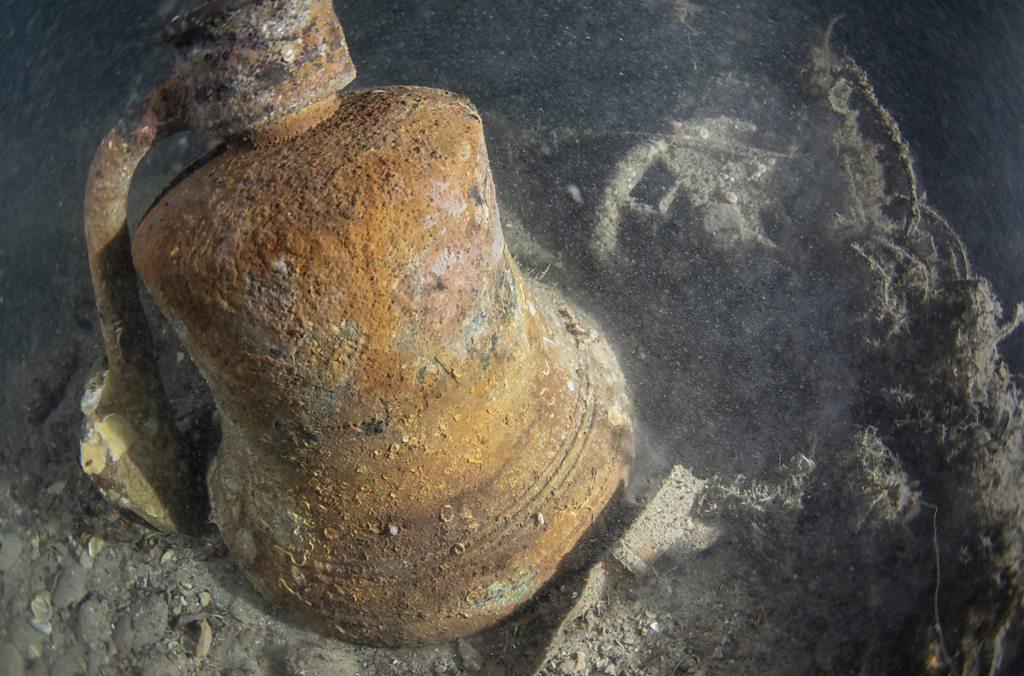Shipwrecks 'sanctuary' for fish escaping trawlers
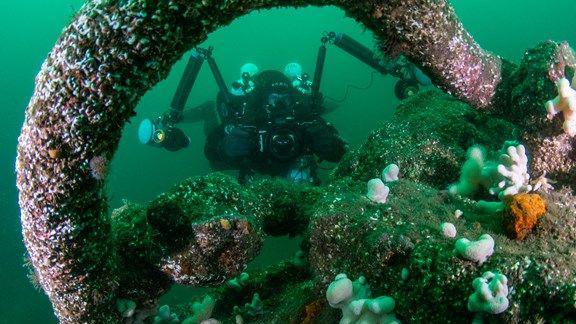
The team gathered the data with the help of local boat owners and analysed videos of the wrecks and seabed
- Published
Fish, corals and other marine species have been using the UK's shipwrecks as a hidden refuge from destructive bottom trawling, researchers have said.
University of Plymouth and Blue Marine Foundation researchers said the sites served as a deterrent to fishers who use bottom towed trawling.
Their report identified that while many areas of the seabed have been damaged significantly by heavy fishing pressure, the seabed in and around shipwrecks remained "largely unblemished".
The new research found the average density of marine life in areas still open to trawling was 240% greater within wreck sites than in sites used for bottom towed fishing.
In parts of the seabed within a 50m (165ft) radius of the wrecks, the difference was even greater with the density of marine life 340% greater than in the control sites.
However, in sites closed to trawling, the abundance was 149% greater than on wrecks and 85% greater than on the seabed within a 50m radius of the wrecks.
Academics said there was an estimated 50,000 shipwrecks around the UK’s coastline, many of which have been lying on the seabed for well over a century.
The study has been published in the journal Marine Ecology, and the university said it was the first to demonstrate the increased ecological importance of shipwrecks – and the areas surrounding them – in areas of heavy fishing pressure.
Jenny Hickman, the study’s lead author, said: “Outside of legal protection, only areas inaccessible to trawlers are offered any protection, which is why shipwreck sites are rarely subject to trawling pressure."
The research was conducted around five shipwrecks off the Berwickshire coast, which are all thought to have sunk in the late 19th and early 20th Century.
Joe Richards, one of the study’s co-authors, said: “The research provides an insight into what might be possible if bottom towed fishing activity is reduced.”
Dr Emma Sheehan, associate professor of marine ecology and senior author, added that it highlighted how past human activity was actually "having a positive impact on the seabed today".
She added: "It is unquestionably something that should be factored into future marine management plans."
Follow BBC News South West on X (formerly Twitter), external, Facebook, external and Instagram, external. Send your story ideas to spotlight@bbc.co.uk, external.
Related topics
- Published1 February 2021
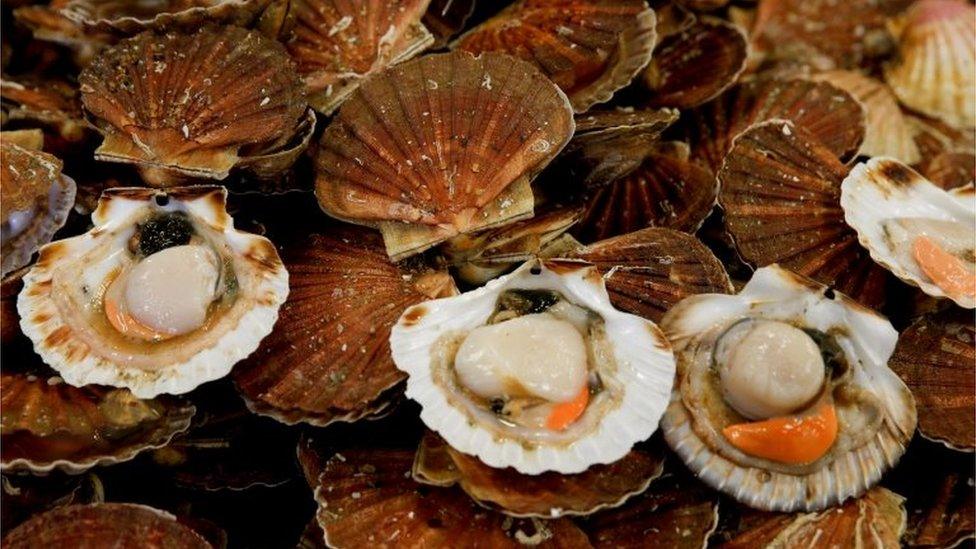
- Published9 May 2022
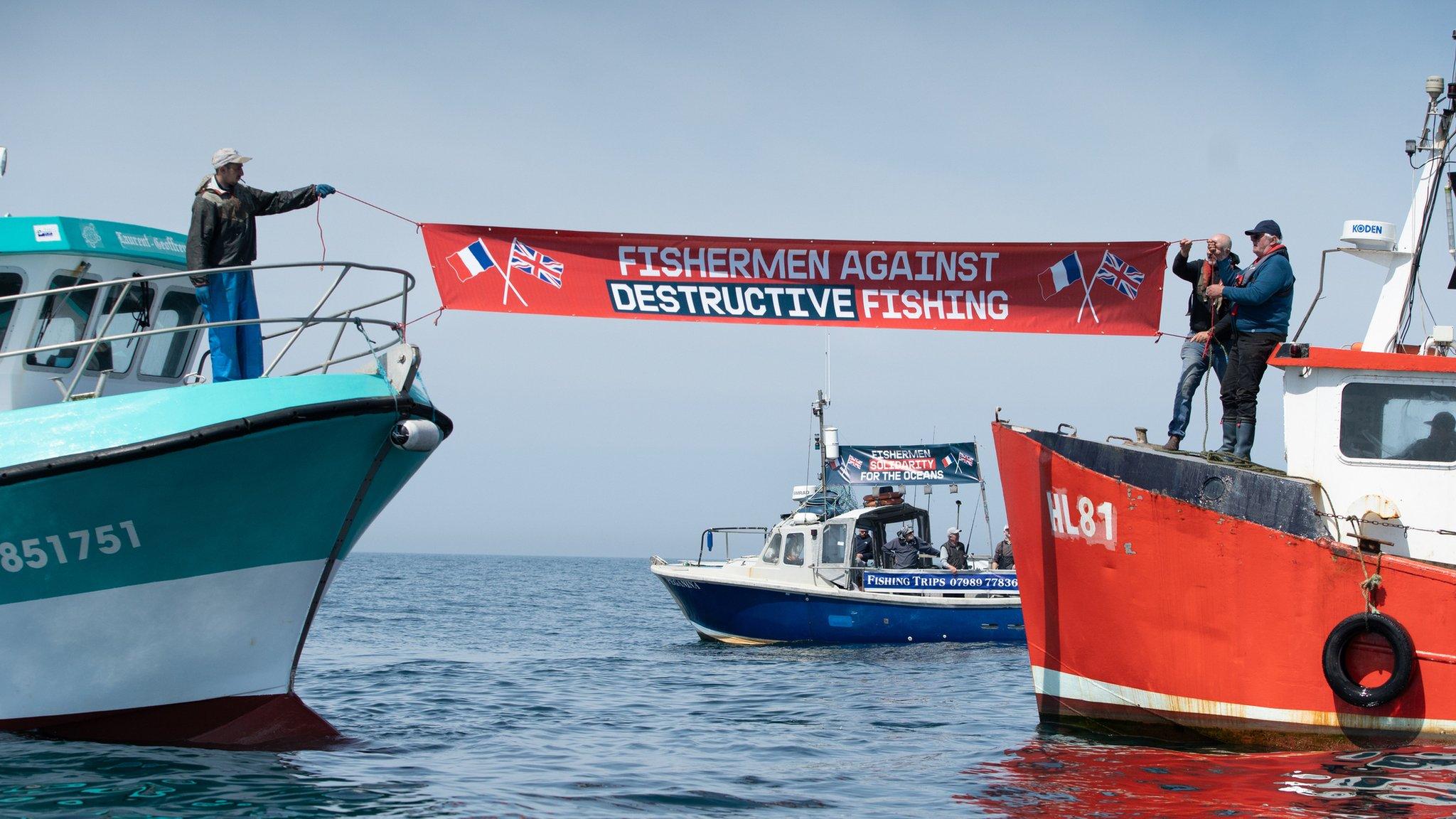
- Published7 September 2023
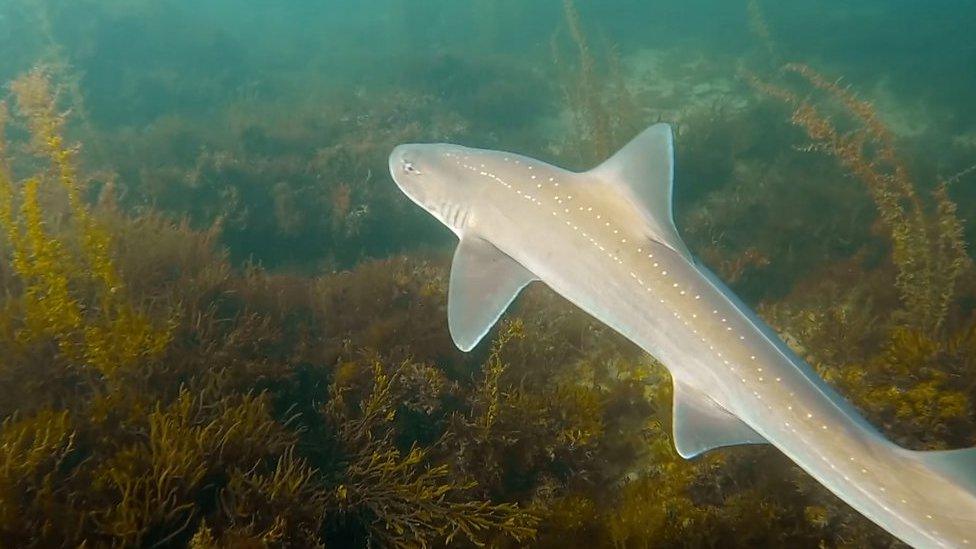
- Published18 August 2022
